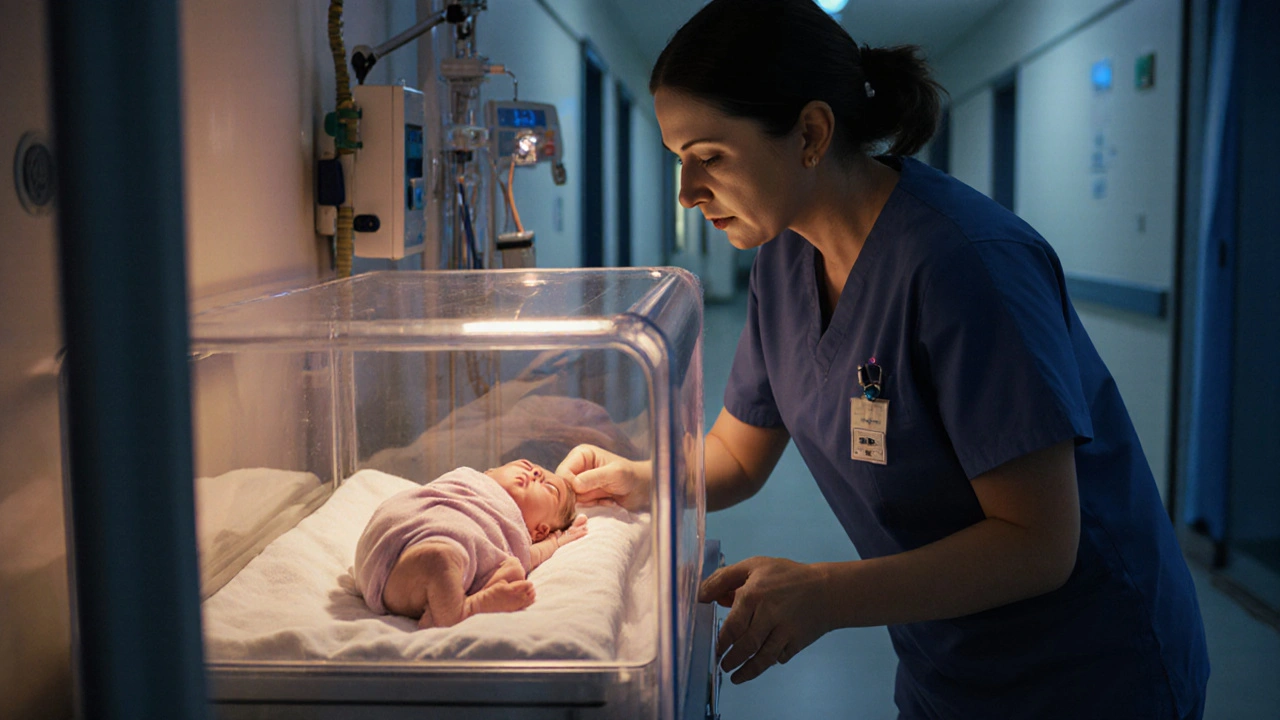Neonatal Seizures: What Every New Parent Should Know
Seeing a baby shake or twitch can be scary, but not every movement means a seizure. Neonatal seizures are abnormal electrical bursts in a newborn’s brain that show up as jerks, stiffening, or strange eye movements. They usually happen within the first month of life and need fast medical attention.
How to Recognize a Neonatal Seizure
Typical signs include:
- Sudden, brief jerking of an arm, leg, or the whole body.
- Stiffening that lasts a few seconds.
- Repeated eye rolling or a stare that doesn’t look normal.
- Rhythmic chewing or sucking motions.
- Changes in breathing or heart rate during the episode.
If you notice any of these, call your pediatrician right away. Even short episodes can hint at an underlying problem.
Common Causes in Newborns
Neonatal seizures often stem from issues that affect the brain before or during birth. The most frequent triggers are:
- Low oxygen (hypoxia) during delivery.
- Infections like meningitis or encephalitis.
- Metabolic imbalances such as low blood sugar or abnormal calcium levels.
- Bleeding inside the brain (intracranial hemorrhage).
- Genetic disorders that affect brain development.
Doctors will run blood tests, brain scans, and sometimes an EEG to pinpoint the cause.
When a seizure is caught early, treatment can prevent long‑term damage. The most common medicines are phenobarbital and levetiracetam, given through an IV or as a pill once the baby stabilizes. In some cases, treating the underlying problem—like giving glucose for low blood sugar—stops the seizures without extra drugs.
While many newborns outgrow seizures within weeks, some may develop ongoing epilepsy. Regular follow‑up appointments with a pediatric neurologist help track development and adjust treatment if needed.
Prevention focuses on good prenatal care and safe delivery practices. Managing maternal health, monitoring fetal heart rate, and being prepared for emergency delivery reduce the risk of oxygen loss, which is a top trigger.
If you’re a caregiver, keep a simple log of any unusual movements: date, time, duration, and what the baby was doing before the episode. This record helps doctors spot patterns and choose the right therapy.
In short, neonatal seizures are a medical emergency, but with quick action, most babies recover well. Know the warning signs, seek prompt care, and stay in touch with your healthcare team to give your newborn the best start possible.
Neonatal Seizures: How to Spot and Treat Infant Seizures Quickly
By Lindsey Smith On 27 Sep, 2025 Comments (17)

Learn how to recognize subtle and overt seizures in newborns, understand the role of EEG, and get clear guidance on first‑line treatments and emergency steps for neonatal seizures.
View More




